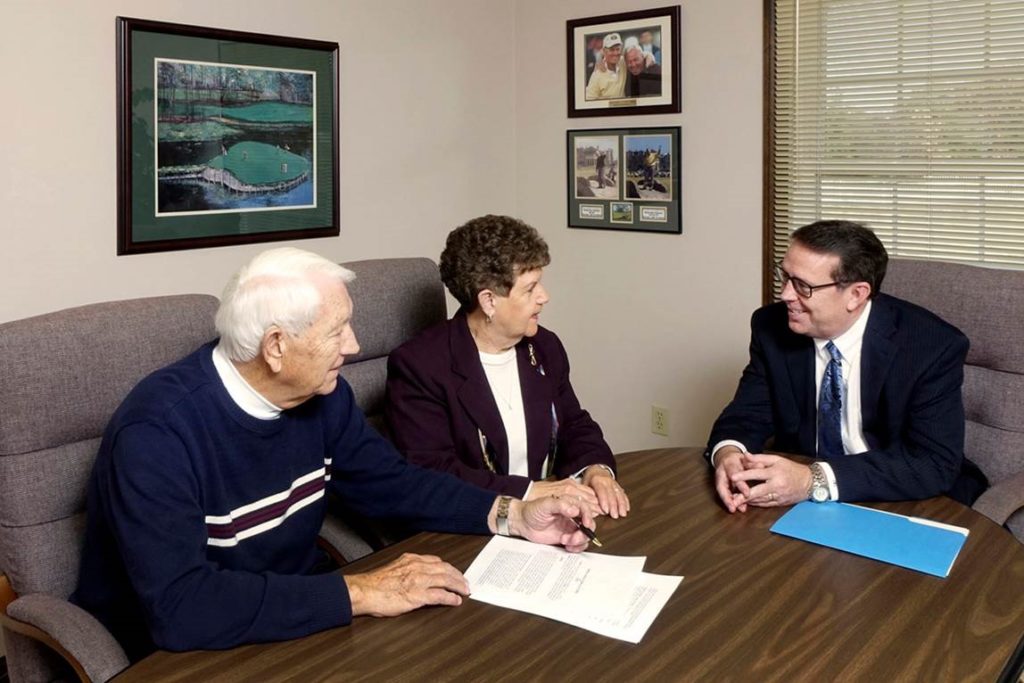The practice of Elder Law has become increasingly popular since it was recognized as a legitimate legal focus approximately 50 years ago. The primary reason for its growth is the aging population in the United States and the special needs related to the aging process. One significant issue is the need for long-term care. As the need for long-term care grows, so does the issue of affordability. Estate planning attorneys are increasingly being asked to counsel families on how to navigate this unknown and often overwhelming path for their loved ones. Asset protection planning is a key legal strategy employed to accomplish that. So, what is asset protection planning?
Asset Protection planning refers to the legal strategies employed by an elder law attorney to preserve assets of an individual or married couple when faced with a long-term care situation. Long-term care is very costly, whether it is delivered in a person’s home, in an assisted living community, or in a skilled nursing facility. Many families fear their loved ones going broke while trying to pay for their care, and that fear is very real. For that reason, increasing numbers of families are seeking assistance from elder law attorneys, like the ones at Beck, Lenox & Stolzer Estate Planning and Elder Law, LLC.
Long-Term Care Statistics
10,000 people turn 65 every day. By 2050, aging adults are expected to represent 20% of our population as reported by AARP International.
According to 2021 Genworth national statistics, the average monthly base rate in an assisted-living community was $4,500. The average monthly rate for a private room in a nursing home was $9,034 while the monthly rate for a semi-private room was $7,908. Average hourly rate for a home health aide was $27; for non-nursing services it was $26. The national average daily rate for adult day services was $78.
Current Ways to Fund Long-Term Care
Private Funding
Private out-of-pocket long-term care cost could mean finding up to an additional $130,000 per year for just one person to receive care. Some consumers may be able to pay for this expense out of their savings or investments for a period of time, but most face the risk of running out of money before the need for care ends. Long-term care insurance may pay for in-home care, assisted living and nursing home care. Unfortunately, because of the drastic and ongoing increase in costs, fewer companies are offering this insurance and fewer people can afford the high premiums.
Public Funding
Government funding is another option for finding funds to pay for care. Medicaid pays a significant portion of nursing home expenses today for many people. There is also funding for Veterans and widows of Veterans through a VA program called the Aid and Attendance Pension Benefit. Both government programs have strict eligibility criteria to qualify and working through the process is usually quite complicated. Beck, Lenox & Stolzer strongly recommends obtaining legal assistance from an experienced elder law attorney when seeking funds from these two programs.
Future Planning vs. Crisis Planning
Elder law attorneys like the ones at Beck, Lenox & Stolzer Estate Planning and Elder Law can help individuals address future long-term care needs as well as help individuals already in a crisis situation. Irrevocable trusts can be used to protect your home and your investment assets if you are interested in utilizing government benefits for long-term care costs in the future. If your assets stay in the irrevocable trust for a minimum of five years before Medicaid or VA is applied for, they are fully exempt from any spenddown requirements. In the event that you suddenly need long-term care and had not done any planning, you still have some options. In the case of utilizing Medicaid funds, an experienced Medicaid planning attorney like the attorneys at Beck, Lenox & Stolzer can save one-third to one-half of an individual’s assets. With a married couple, where one spouse is in the nursing home and the other spouse is trying to remain in their family home, it is possible that all of their assets can be saved.
Our Mission
Beck, Lenox & Stolzer Estate Planning and Elder Law developed a mission statement in the early years of offering elder law services. The statement reads, “To provide peace of mind to seniors and families by developing a long-term care plan to maximize independence, maintain quality of life and identify resources to pay for care.” Any of our elder law attorneys can provide answers to your questions about asset protection planning that are appropriate for your specific situation.
Where To Go For Help
For additional information about asset protection planning, check out this section from the Beck, Lenox & Stolzer website. Click here to schedule a free call with one of our attorneys.
References: AARP International , The 2021 Genworth Cost of Care Survey










